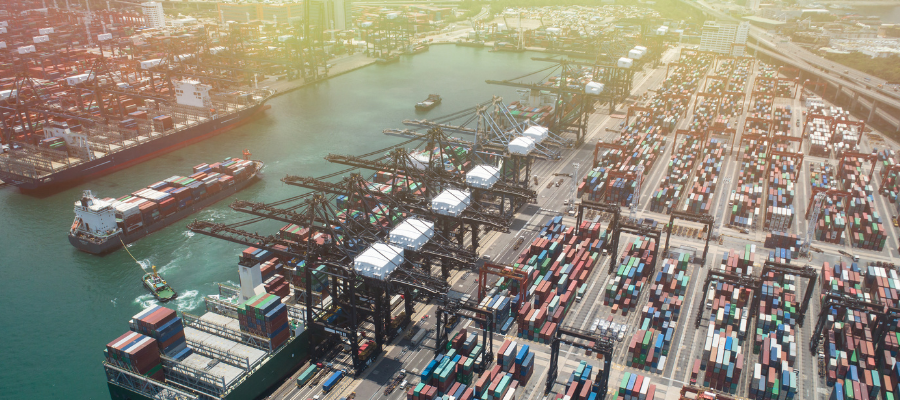🕒 Article read time: 2 minutes
Ukraine crisis threatens to place global supply chains at risk

Global supply chains, already under pressure as they recover from more than two years of COVID-19 disruption, are now being tested to the limit as the war in Ukraine is disrupting key markets and interconnected global supply chains.
Economic sanctions imposed on Russia by western governments to cripple the Russian economy are having knock-on effects, while Ukraine, often described as the “breadbasket of Europe” owing to its global trade in cereals, is currently unable to export these essential commodities in the same volumes.
REGIONAL CONFLICT LEADS TO RIPPLE EFFECT
While combined Russian and Ukrainian trade only accounts for £1 in every £50 – a relatively tiny part of the world’s economy – the war is having a much wider ripple effect. The desire of western governments to wean themselves off Russian energy is leading to a global dash for alternative supplies of oil and gas and a recent report from the Organisation for Economic Co-operation and Development (OECD) warns that the conflict could push up prices globally by about 2.5%.
FOOD AND AUTOMOTIVE SECTORS AFFECTED
Russia and Ukraine are major exporters of key commodities, such as sunflower seeds, rape or colza seeds, and cereal. Businesses that are reliant on these commodities – whether they usually source them directly from these countries or not – are likely to be most affected by the crisis. The automotive sector – which is already suffering from a global shortage of semi-conductor chips – is likely to be hit further, with both Ukraine and Russia large producers of industrial metals and other raw materials, including palladium, and neon, which is used to produce semiconductors.
PORT CLOSURES PLACE SUPPLY CHAINS AT RISK
Logistics operations around the world are being impacted, with virtually all modes of transport affected. The closure of Ukrainian seaports is bringing shipping in the Black Sea to a standstill, and major shipping lines are interrupting their services to Russian ports. The New Silk Road rail route is now deemed as too risky to use by many shippers, and the closure of airspace above Russia is leading to flight cancellations and the lengthy and expensive rerouting of key air cargo routes, particularly to Asian markets. Military operations and the fallout from economic sanctions are profoundly affecting east to west trade and placing highly interconnected global supply chains in the balance.
FUEL IS BIGGEST COST FOR UK OPERATORS
In the UK, logistics businesses, which already operate on very narrow margins of around 1%, are facing significant increases in the price of fuel as a result of western sanctions against Russia and the subsequent dash for alternative supplies of oil and gas. Fuel is the single biggest expense incurred by road transport operators – it accounts for a third of the annual operating cost of a heavy goods vehicle (HGV) and without it, goods cannot be delivered to their destinations. On 11 March 2022, Logistics UK wrote to Rishi Sunak MP, the Chancellor of the Exchequer, ahead of the Budget 2022, urging for a temporary reduction in diesel Fuel Duty to protect the economy and ensure that logistics operators can continue to operate efficiently. The five pence per litre reduction announced in the Spring Statement will result in an average saving of £2,356 per year per 44-tonne truck and will help to strengthen the UK's supply chain during a time of ongoing financial and operational challenges.
INDUSTRY RESPONSE TO AID APPEAL OFFERS HOPE
Despite the sobering economic data, however, the response of the UK’s logistics sector to an appeal for humanitarian aid for Ukrainian refugees has been remarkable.
“Logistics UK issued an urgent request to its members to help in the collection and distribution of aid to refugees from the Ukrainian conflict,” said Sarah Lauouadi, Head of International Policy, Logistics UK, “More than 68 organisations from across Logistics UK’s membership stepped up immediately with offers of vehicles, staff, warehousing space and packaging to assist with the relief efforts, with new pledges for aid still coming in on a regular basis.”
* If any members are able to pledge their support to the Ukraine humanitarian crisis, please email supplyukraine@logistics.org.uk
Published On: 24/03/2022 16:00:03

Comments Section
If you are a Logistics UK member login to add comments.